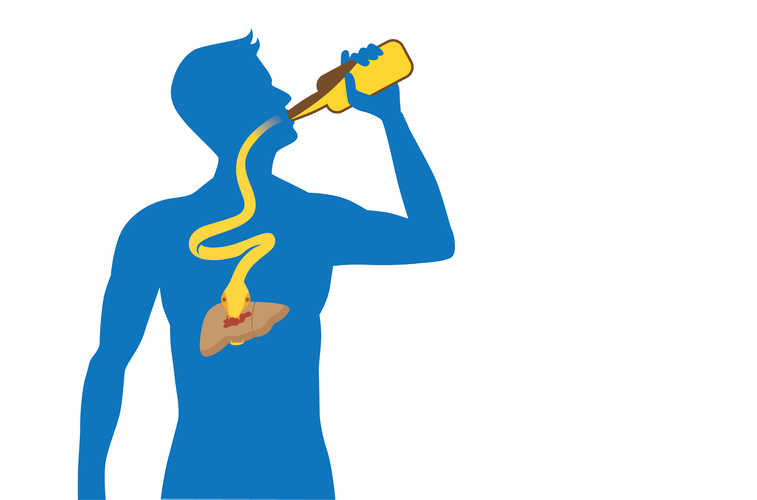Healthy boundaries empower families to provide support without overextending themselves. Clear boundaries define acceptable behaviors and roles, helping prevent enabling or codependency. Educational programs, such as those offered by Gateway Foundation, also include information on medication-assisted treatment, relapse prevention, and the importance of https://live-jimmywebstudio.pantheonsite.io/when-does-social-drinking-become-problem-drinking/ continuous support. Family support also encourages accountability—the loved one’s participation in treatment is reinforced through the family’s active encouragement and monitoring.
Addiction Recovery Medical Services

Peer-led support groups such as Al-Anon or Narc-Anon offer emotional relief, practical advice, and shared experiences. Encouraging self-care helps family members manage stress and maintain their well-being, which is crucial for sustained support. Research consistently shows that individuals with Sobriety strong family support are more likely to achieve and maintain sobriety. Addiction recovery is not just about quitting substance use; it’s about rebuilding a fulfilling life with the support of loved ones. Engaging professional help from addiction therapists and substance abuse programs ensures that the support offered is effective and based on best practices.
Resources for Families
Families can benefit from sharing responsibilities and seeking professional support to avoid burnout. They might manage appointments, handle daily responsibilities, or provide constant reassurance. Families can shift away from enabling by learning to say no and encouraging accountability.
- At this time, the focus might be on constructing support for both the person living with alcohol use disorder and family members with enabling behaviors.
- This is particularly important in substance abuse treatment, where ongoing dialogue can aid in adapting the treatment plan as needed.
- Research shows that people with family support typically have better recovery outcomes.
- Addiction often affects not just the individual but their entire family, making it essential to understand how to work together effectively.
- Preventing relapse in individuals recovering from substance use disorders is a multifaceted challenge that extends beyond the clinical and into the personal, everyday lives of those in recovery.
- By establishing clear expectations and open lines of communication, they can effectively support their loved ones in adhering to treatment plans and avoiding potential relapse triggers.
Understanding the Role of Family in Recovery

Despite the abundance of rigorously conducted studies and findings supporting the efficacy of dyadic AUD treatment, evidence-based couple and family therapies are rarely applied in frontline treatment settings. Literature identifying barriers to provider uptake and patient utilization is also limited. Residential recovery homes also emphasize community connection, showing that residents who proactively engage in social networks related to recovery enjoy better outcomes. Cultivating relationships with peers who understand the challenges of addiction provides emotional reprieve and encourages positive coping strategies. In these settings, individuals can exchange practical strategies for managing triggers and cravings.
- The field would benefit from additional research on CRAFT and other professional approaches for addressing stress and coping mechanisms, behavioral health problems, and general wellness among family members affected by youth SUD.
- This support can include managing appointments, ensuring medication schedules are followed, and providing transportation to therapy sessions or support group meetings.
- Knowing their family is behind them can boost self-esteem and motivate people to stick to their recovery plans.
- Ariss and Fairbairn (2020) completed a meta-analysis of family-involved treatments that condensed data from 2,115 adolescents and adults across 16 independent trials.
- For families seeking guidance on how to engage in this journey, resources like your role as a family member in a loved one’s treatment journey can offer valuable insights.
Family engagement not only provides a safety cushion but also boosts motivation and commitment to sobriety. Strategic family-based approaches to relapse family support in addiction recovery prevention include regular involvement in therapy, educational programs, and participation in support groups like Al-Anon or Nar-Anon. Knowledge about addiction as a chronic disease reduces blame and stigma, fostering compassion. Families learn about the behavioral, psychological, and physical aspects of substance use disorder. Programs like Community Reinforcement and Family Training (CRAFT) are tailored to improve engagement by empowering family members to motivate their loved ones towards treatment.
The Active Child’s Playbook: Best Sports for Managing Hyperactivity and Fostering Focus
This may mean limiting contact with people or situations that trigger you or practicing self-compassion when things don’t go as planned. When the family comes together to offer support and focus on positive outcomes as a unit, it may help prevent many of the pitfalls during recovery. It is essential for family members to focus on positive, forward-thinking support. Looking back at past mistakes or sufferings can be counterproductive; instead, they should promote hope and progress in their loved one’s recovery. Recovering from addiction requires appropriate treatment, patience, and a lot of support. Family support can benefit people in recovery and help them to maintain sobriety, even through challenges.

Family support plays a pivotal role in the recovery process for those battling addiction. Positive relationships with family members can boost an individual’s self-respect and overall confidence. Studies show that individuals with strong family connections are less prone to relapse and more likely to adhere to their recovery plans.
- Accountability roles taken on by family members—such as monitoring medication, assisting with appointments, and encouraging adherence to treatment plans—contribute to the patient’s sense of responsibility and commitment.
- Recovering from addiction is a challenging process that demands not only personal dedication but also a robust support system.
- This supportive atmosphere encourages the recovering individual to engage in their treatment and reinforces their commitment to sobriety.
- Even if some family members are initially hesitant to participate, they can gradually join in when they feel ready, ensuring everyone’s concerns and perspectives are heard and respected.
- Family and friends are instrumental in addiction recovery, playing a multifaceted role that enhances an individual’s chances for a sustainable recovery journey.
- Positive reinforcement and supportive family relations play a crucial role in maintaining a safe space for recovery.
Our specialized treatment programs, including Opioid Treatment Programs, Alcohol Treatment Programs, Cocaine Treatment Programs, and Fentanyl Treatment Programs, integrate family involvement at every stage. We understand the courage it takes to start your recovery journey because many of us have been there too. At Cenikor, we create personalized, evidence-based treatment plans tailored to your unique needs. Discussing fears, progress, and setbacks openly can help both the individual and the family address issues before they become unmanageable. This is particularly important in substance abuse treatment, where ongoing dialogue can aid in adapting the treatment plan as needed. Understanding addiction, treatment options like methadone treatment or Buprenorphine for opioid addiction, and the recovery process can help families respond more effectively to their loved ones’ needs.
